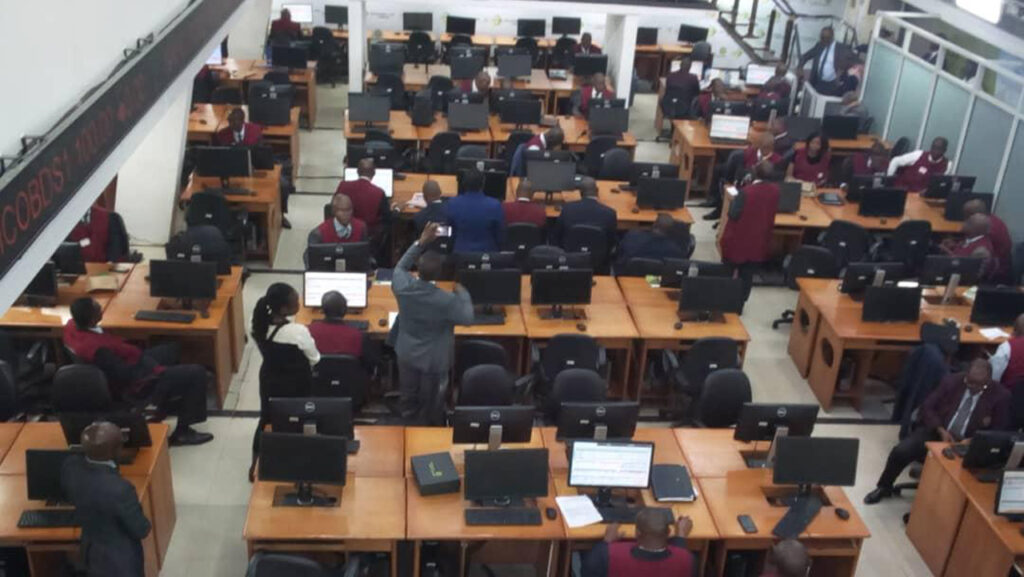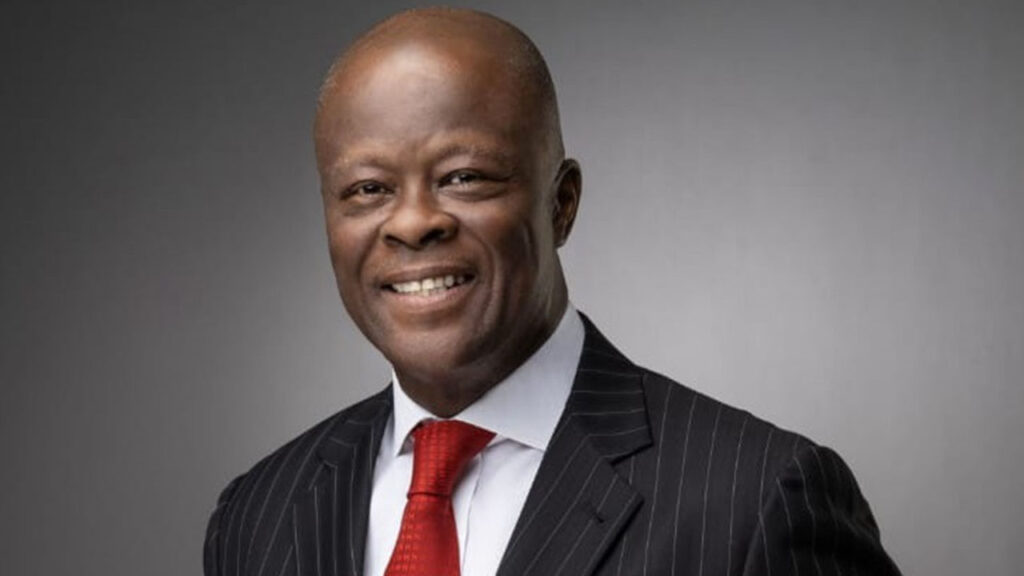 • Posers Over Due Process In AMCON
• Posers Over Due Process In AMCON
• Controversy At Wages Commission Over Headship, Dissolution
• ‘Buhari Erred In Law’
EXPECTEDLY, the delay in the constitution of a federal cabinet, more than 100 days after the inauguration of a new government, has thrown up incongruities in the day to day running of government.
Investigations reveal that few key appointments and subdued policy directives now have public servants at daggers drawn, jostling for supremacy and hustling for elevation in ranks — by hook or crook.
Particularly, the recent circular dissolving Boards of Federal Government agencies, which is widely perceived to be ambiguous — the case of reversion of upgrade of four Colleges of Education readily comes to mind — has raised dust over the status of some chief executives of these agencies.
Two examples readily come to mind: the recent dissolution of the old and constitution of a new board at the Asset Management Company of Nigeria (AMCON) and the polarisation of management at the National Salaries, Income and Wages Commission (NSIWC).
At AMCON, it is said that the action runs counter to the spirit and letter of the Act establishing the company, which prescribes process by which its Managing Director (MD) and Chief Executive Officer (CEO) and the other members of management (the Executive Directors) are appointed.
The battle is fiercer at the NSIWC. The Commission’s chairman, Chief Richard Egbule and its secretary, Dr. Emmanuel Afolabi Thompson, are at each other’s jugulars over who should be in charge. Thompson allegedly declared Egbule sacked, following the circular, while the later maintains that, as Chairman of the Commission, he is insulated from sack after the Commission’s board dissolution.
Though the AMCON Act 2010 states that its management shall be appointed only after a confirmation by the Senate of the Federal Republic of Nigeria and must be recommended in part by the Central Bank of Nigeria (CBN) and the Federal Ministry of Finance, President Muhammadu Buhari last August, unilaterally announced the appointment of a new Board without recourse to the law.
He directed the new MD as well as three new Executive Directors to assume duty without complying with the conditions of their appointments, apparently due to lack of proper guidance by those (FEC) whose offices remain vacant.
The development has drawn wide condemnation and the ire of some stakeholders, including an activist-lawyer, Ebun-Olu Adegboruwa, who has gone to court to challenge the seeming contravention of due process.
Accordingly, Adegboruwa has filed a suit against President Muhammadu Buhari for appointing the AMCON board without recourse to the Senate.
According to him, the appointments were in clear violation of the relevant statute setting up the agency. He argued that the President cannot appoint anyone as Executive Director of AMCON without complying with Section 10(1) C of the AMCON Act 2010, praying the court to declare it as “illegal, unconstitutional, null and void and of no effect whatsoever.”
At the NSIWC, the contentious circular was interpreted by a group loyal to the secretary to mean that the chairman’s position had become vacant following the Board’s dissolution and he ought to hand over to the Secretary, who is the accounting officer of the agency.
It was learnt that their argument is premised on a precedent set by the immediate past chairman, Mr Williams, who reportedly left office, following the dissolution of the Board during former President Olusegun Obasanjo’s administration. They also contend that the chairman ought to leave because the Commission was not one of the agencies exempted from such sack because it was not mentioned under the Third Schedule of the Nigerian Constitution.
The group sent a memo to the Accountant General of the Federation’s Office, asking for a stop to payment of salaries to the Board members.
In the memo, which was obtained by The Guardian, titled Request for Stoppage of Salary of Board members of the Commission, which was dissolve by President Muhammadu Buhari and signed by the Head, Finance and Account of the commission, Mrs. E. A. Osisanwoa, the IPPIS (Account) numbers of full time board members was forwarded and the office requested to stop their salaries, as they have refused to vacate offices following the Board’s dissolution.
In another statement, the group alleged, “Former Board members of the Commission are still occupying their post in spite of the presidential directive dissolving all boards effective July 16, 2015. Instead of vacating their seats as directed, these three men have constituted themselves into a cabal to lobby high-ranking government officials to get an exemption and remain in office, an action which negates the change mantra of the current administration.”
It continued: “ In spite of the chairman and members of the Board being in possession of the circular by the Head of the Civil Service of the Federation, Danladi Kifasi dated July 16, notifying them of the dissolution of all boards, the trio are bent on illegally perpetuating themselves in office. Also, Chief Egbule has refused to hand over the affairs of the commission to the permanent secretary of the supervising ministry or government office as directed by a circular issued by Mohammed Bukar dated July 23.”
But in a swift reaction to the group, embattled Egbule described the development as “unfortunate,” and a poor understanding of the status of the commission and distortion of the intent of the President’s directive.
A retired Permanent Secretary, Egbule, who was the pioneer secretary of the Commission and is in his second tenure having been reappointed only last year for another term of five years, said the misinterpretation was laughable, adding that the group deserves pity and not to be scorned.
According to him, his appointment is both as Chief Executive of the Commission, which means day to day running of the Commission as well as chairman of the Board. In this wise, he explained that his position couldn’t become vacant following the Board’s dissolution.
He said the dissolution was not the first, as it had happened during late President Umaru Yar’adua’s administration, where he continued in office while only Board members were sacked, until the constitution of a new Board in which he continued as chairman and CEO.
Similar agencies with the same structure that have their chairmen exempted from Board dissolutions, according to him, include the Economic and Financial Crimes Commission (EFCC), the Independent Corrupt Practices and Related Crimes Commission (ICPC), National Drug Law Enforcement Agency (NDLEA), the Federal Inland Revenue Service (FIRS), amongst others.
He said: “What is the content of instrument of dissolution? It says very clearly that the Chief Executive of the agencies should report to the permanent secretaries of their supervising ministries or offices, so that whatever they could have taken to their Boards should now go there. In my case, we don’t report to a ministry; we report to the office of the Secretary to the Government of the Federation (SGF).
“That office, in keeping with the content of the instrument of the dissolution, wrote me, asking that I act in absence of the board and that I address whatever I have to tell the President through the office. I have that letter because they know that, by the law and by my appointment, I am the chief executive and that’s why I am here.”
He said he was instrumental to the employment of the secretary and wonders why the man has turned against him, adding, “According to the Act, ordinarily, when the chairman is not here and wants to handover, it is not to the secretary. It is to one of the commissioners, a board member, and it’s stated here that a commissioner would act. It is envisaged, I believe, that if he is not there, one of the three commissioners that is full-time should be acting, not the secretary, because the secretary is not a member of the board. The law defines his duties and it is very clear as an accounting officer, which is to ensure that the rules and regulations are obeyed and to assist the chairman in the day-to-day running of the commission.”
Reacting to the alleged precedence, Egbule said his predecessor was never sacked but abandoned the job without handing over to anyone.
According to him, “Should I hold the brief for Mr. Williams, my predecessor? Why? He walked away. Two years into his tenure, Boards were dissolved and all of them went, he waited for a while, maybe for two weeks, and then walked away; nobody chased him away. He did not even produce any letter that says he should go. Even if he produces a letter, it means that the circular dissolving the Board did not affect him. He did not handover to me, he did not write any handover note.”
General dissolution affects part-time board members, where are they remunerated; they are remunerated under our own part-time salary allowances. This is my second tenure. The first tenure ended last August and was renewed in June, before even the expiration. We applied and they gave us letters of renewal. We are approximately one year into that new regime because each tenure is five years,” he said.










